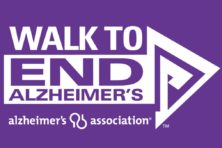Virtual Alzheimer’s Education Conference Aug. 20
- Share
- Tweet
- Pin
- Share
As Door County’s elderly population grows, so does the number of people and caregivers who are dealing with the debilitating effects of Alzheimer’s disease. An estimated 926 Door County residents are now diagnosed with Alzheimer’s or dementia – a figure that’s expected to rise to more than 1,500 by 2040, according to data from the Alzheimer’s Association.
For each patient, there is an average of more than two caregivers who are struggling to help that loved one cope with the illness.
“The emotional, physical and financial stress can be overwhelming for a caregiver,” said Charles Fuschillo, president and CEO of the Alzheimer’s Foundation of America, which is hosting a free, virtual Alzheimer’s education conference for Wisconsin residents Aug. 20.
It will feature Dr. Mehmet Oz, who will share his story about dealing with his mother’s Alzheimer’s diagnosis last year. Oz will share tips to promote good brain health and healthy aging. Additional sessions will include Brain Health in the Time of COVID-19, a session on powers of attorney and long-term-care planning, and a session on effective ways to deal with the stress of caregiving. Visit alzfdn.org/tour to register for the conference.
“It’s critically important for caregivers to know they have a place to turn,” Fuschillo said. “But it’s especially important to know how things have changed for best practices during the pandemic.”
Fuschillo said calls to the organization’s help line have increased dramatically during the pandemic as caregivers struggle with isolation. The foundation has launched two new virtual support groups: one focused on caregivers whose loved ones are in a care setting where they can’t be visited, and one for resolving conflicts within a caregiving team.
Christine Wisniewski, geriatric outreach specialist at Door County Medical Center, said it can be difficult to get caregivers to take advantage of support groups – particularly male caregivers.
“In our experience, men tend to struggle more with asking for and accepting help,” she said. “There’s no simple reason why, but for some, it’s because they have always felt they needed to take care of the family, so it can be hard to not have the answers.”
The conference is part of the Alzheimer’s Foundation’s annual Educating America tour, which is normally an in-person conference. Fuschillo hopes the virtual option will allow more people to take advantage of the resource.
“We want individuals who are caring for someone with Alzheimer’s to know about the resources available to help them and steps that they can take to improve their loved one’s care and quality of life,” he said. “This conference will bring that information directly to families without having to leave their homes.”


